-
 Bitcoin
Bitcoin $111200
0.03% -
 Ethereum
Ethereum $4321
0.45% -
 Tether USDt
Tether USDt $0.9999
-0.02% -
 XRP
XRP $2.824
0.89% -
 BNB
BNB $856.7
1.36% -
 Solana
Solana $204.4
0.79% -
 USDC
USDC $0.9998
0.00% -
 Dogecoin
Dogecoin $0.2178
2.21% -
 TRON
TRON $0.3317
-1.04% -
 Cardano
Cardano $0.8334
2.36% -
 Hyperliquid
Hyperliquid $47.48
5.04% -
 Chainlink
Chainlink $22.43
0.45% -
 Ethena USDe
Ethena USDe $1.001
0.01% -
 Bitcoin Cash
Bitcoin Cash $615.9
4.10% -
 Sui
Sui $3.404
2.84% -
 Stellar
Stellar $0.3610
1.92% -
 Avalanche
Avalanche $24.44
1.03% -
 Hedera
Hedera $0.2185
1.99% -
 Cronos
Cronos $0.2710
2.40% -
 UNUS SED LEO
UNUS SED LEO $9.567
0.12% -
 Litecoin
Litecoin $112.4
1.13% -
 Toncoin
Toncoin $3.084
-0.52% -
 Shiba Inu
Shiba Inu $0.00001239
2.12% -
 Polkadot
Polkadot $3.881
2.85% -
 Uniswap
Uniswap $9.394
0.47% -
 Dai
Dai $0.9997
-0.02% -
 Ethena
Ethena $0.7621
16.86% -
 Monero
Monero $269.5
0.69% -
 Aave
Aave $302.2
-1.65% -
 World Liberty Financial
World Liberty Financial $0.1825
-0.64%
How to cancel a pending transaction on Coinbase?
Pending crypto transactions on Coinbase can't be canceled or sped up by support—once broadcast, they rely on network confirmation, which may take hours or days.
Sep 05, 2025 at 10:18 pm
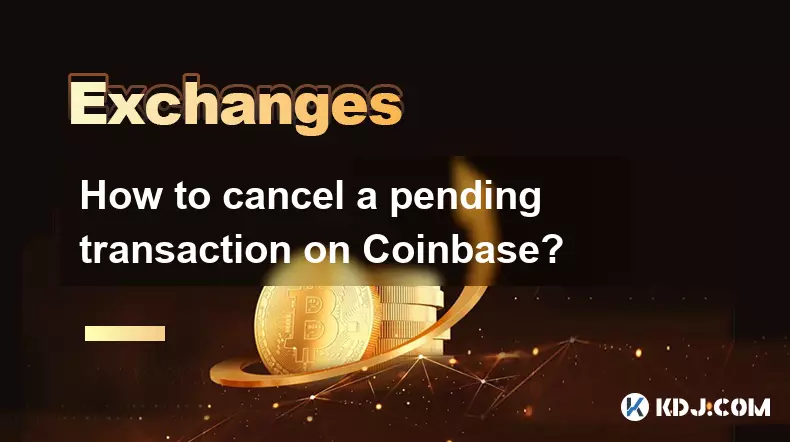
Understanding Pending Transactions on Coinbase
1. When a transaction is initiated on Coinbase, it is broadcasted to the blockchain network for validation. Until the network confirms it, the transaction remains in a pending state. This can happen due to network congestion or low transaction fees.
2. Unlike traditional banking systems, cryptocurrency transactions cannot be canceled once broadcasted. The decentralized nature of blockchains means no single entity, including Coinbase, has the authority to reverse or cancel a pending transaction.
3. Users often misunderstand the role of Coinbase in transaction processing. While Coinbase facilitates the initiation of transactions, the actual confirmation depends on the underlying blockchain, such as Bitcoin or Ethereum, and its miners or validators.
4. A transaction may remain pending for hours or even days, especially during periods of high network activity. During this time, the funds are neither available in the sender’s wallet nor credited to the recipient.
5. Some users attempt to contact Coinbase support hoping for intervention. However, support teams can provide status updates but cannot alter the blockchain’s operation or cancel transactions already submitted to the network.
Strategies to Handle Stuck Transactions
1. For Ethereum-based transactions, one possible solution is to replace the pending transaction using a feature called “Replace-by-Fee” (RBF). This involves sending a new transaction with the same nonce but a higher gas fee, incentivizing miners to prioritize it over the original.
2. To use RBF, users must access their wallet’s advanced settings. In wallets connected to Coinbase, like Coinbase Wallet, users can manually increase the gas fee for the stuck transaction if the original transaction supports RBF.
3. Another method is to send a “double-spend” transaction with a significantly higher fee and the same nonce. This confuses the network into processing the newer transaction, effectively nullifying the pending one.
4. It is critical to ensure that the wallet being used supports custom nonce and gas settings. Without this control, users cannot manually influence how or when their transaction is confirmed.
5. In cases where the transaction does not confirm and the user regains access to the funds after the network drops the pending status, they can attempt the transfer again with an adjusted fee based on current network conditions.
Preventing Future Transaction Delays
1. Always check current network congestion before initiating a transaction. Tools like Etherscan for Ethereum or Bitcoin Fee Calculators provide real-time data on recommended fees to ensure timely confirmation.
2. When using Coinbase or any crypto platform, opt for dynamic fee settings that adjust based on network load. This reduces the likelihood of underpaying and ending up with a stuck transaction.
3. For non-urgent transfers, users can schedule transactions during off-peak hours when network activity is lower, thus reducing competition among transactions and lowering required fees.
4. Consider using Layer 2 solutions or alternative blockchains with lower fees and faster confirmation times, especially for smaller transactions where speed and cost are critical.
5. Educate yourself on blockchain mechanics such as gas fees, nonce management, and mempool behavior to make informed decisions and avoid common pitfalls that lead to pending transactions.
Common Issues and Misconceptions
1. A widespread misconception is that Coinbase can cancel transactions upon request. This is false. Once a transaction is signed and broadcasted, it is out of Coinbase’s control.
2. Some users believe that closing the app or logging out will stop a pending transaction. In reality, the transaction continues to propagate through the network regardless of device status.
3. Another myth is that funds are lost forever if a transaction is stuck. In most cases, the funds eventually return to the sender’s wallet if the network rejects the transaction due to timeout or low fees.
4. Users sometimes panic and send multiple transactions to the same address, thinking it will speed up the process. This only compounds the problem and increases fees unnecessarily.
5. Understanding that blockchain transactions are immutable by design reinforces the importance of double-checking all details before confirming any transfer.
Frequently Asked Questions
Can I get a refund if my transaction remains pending?No, Coinbase cannot issue refunds for pending transactions because the funds have not left the sender’s control permanently. If the network rejects the transaction, the funds will automatically return to your wallet.
How long does a transaction stay pending?It varies. On Ethereum, it could take minutes to over 24 hours depending on gas fees and congestion. Bitcoin transactions may take longer during peak times, sometimes exceeding 48 hours if fees are too low.
Does Coinbase support Replace-by-Fee (RBF)?Coinbase.com does not allow users to modify transaction fees after submission. However, Coinbase Wallet, which is non-custodial, allows advanced users to adjust fees manually if the transaction supports RBF.
What should I do if my transaction is pending for more than a day?Check the transaction hash on a blockchain explorer. If it shows low gas, consider using a wallet that supports nonce reuse to send a higher-fee transaction with the same nonce to replace it.
Disclaimer:info@kdj.com
The information provided is not trading advice. kdj.com does not assume any responsibility for any investments made based on the information provided in this article. Cryptocurrencies are highly volatile and it is highly recommended that you invest with caution after thorough research!
If you believe that the content used on this website infringes your copyright, please contact us immediately (info@kdj.com) and we will delete it promptly.
- Cryptos, Future, Investment: Spotting the Next Big Thing in the Wild World of Digital Assets
- 2025-09-06 08:45:13
- Arctic Pablo, Trump Coin & Crypto Mania: What's the Deal?
- 2025-09-06 09:05:13
- BullZilla ($BZIL): Riding the Meme Coin Wave with Presale Price Potential
- 2025-09-06 06:45:14
- Bitcoin Whale Awakens: $10 Billion Ethereum Shift?
- 2025-09-06 06:25:11
- Cardano, Pi Network, and Presale Altcoins: What's the Buzz?
- 2025-09-06 04:45:15
- Bitcoin Hashrate, Price, and ATH: Navigating the Crypto Landscape
- 2025-09-06 04:30:12
Related knowledge
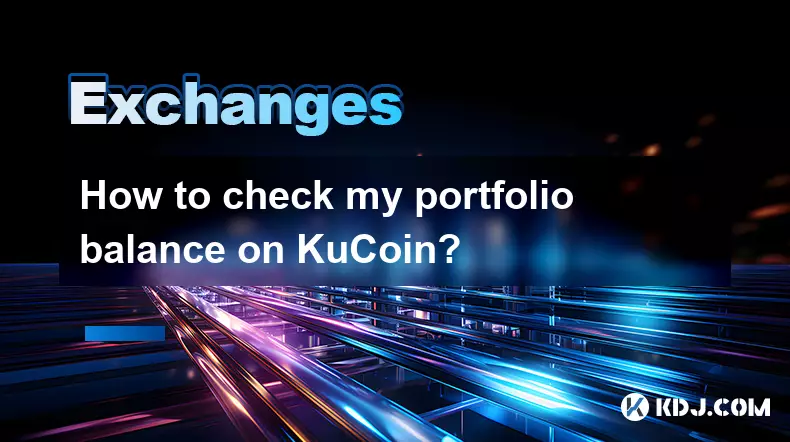
How to check my portfolio balance on KuCoin?
Sep 06,2025 at 10:36am
Accessing Your KuCoin Account Dashboard1. Navigate to the official KuCoin website or open the KuCoin mobile application. Ensure you are using a secure...
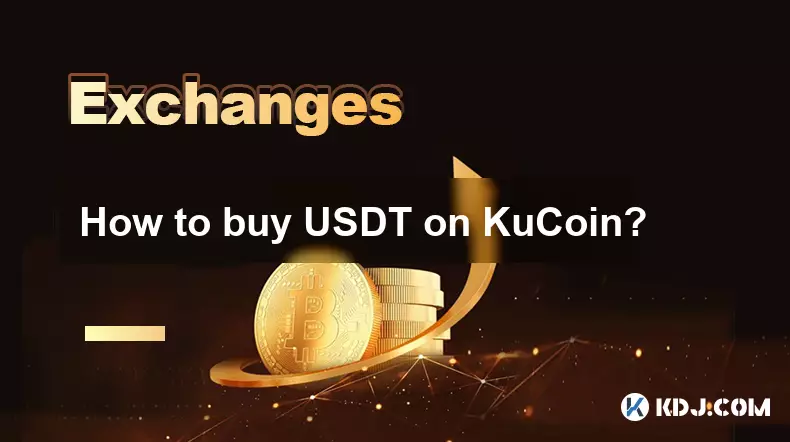
How to buy USDT on KuCoin?
Sep 06,2025 at 08:55am
Creating and Verifying Your KuCoin Account1. Navigate to the official KuCoin website and click on the 'Sign Up' button to begin registration. Provide ...
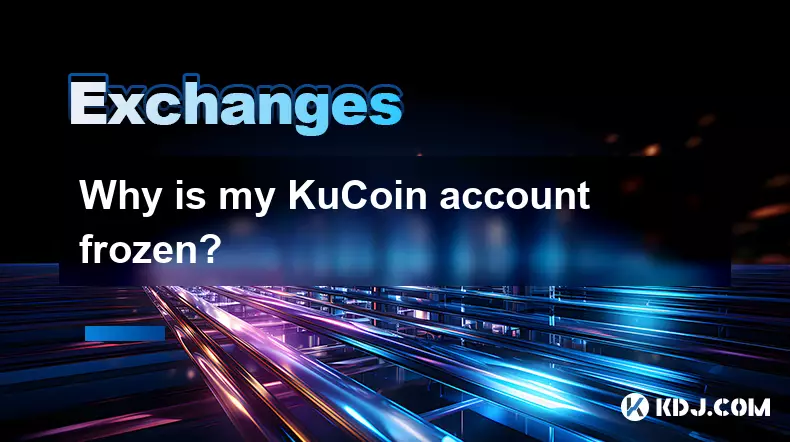
Why is my KuCoin account frozen?
Sep 05,2025 at 06:55pm
Common Reasons for a Frozen KuCoin Account1. Unverified identity information. KuCoin requires users to complete KYC (Know Your Customer) procedures to...
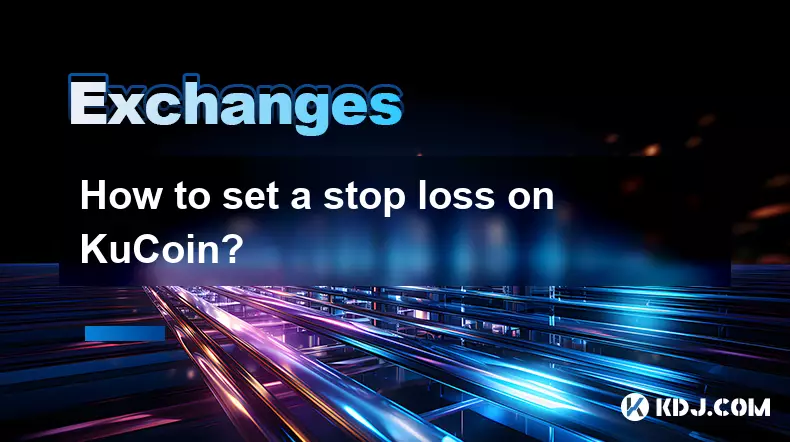
How to set a stop loss on KuCoin?
Sep 06,2025 at 10:01am
Understanding Stop Loss on KuCoin1. A stop loss is a risk management tool used by traders to limit potential losses on a position. On KuCoin, this fea...
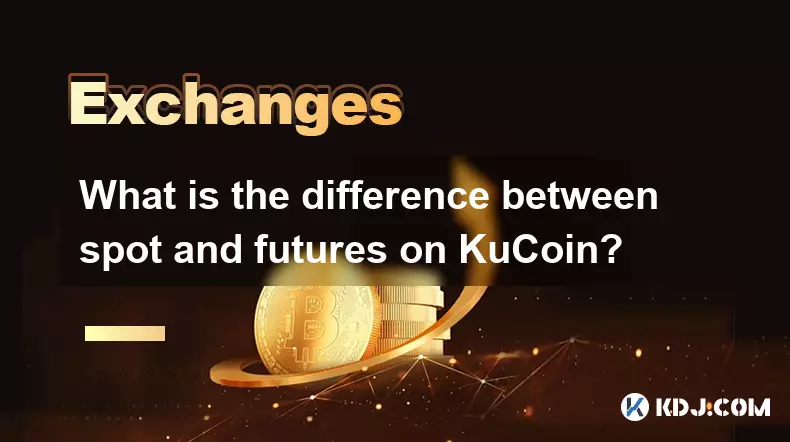
What is the difference between spot and futures on KuCoin?
Sep 06,2025 at 04:01am
Understanding Spot Trading on KuCoin1. Spot trading involves the direct purchase or sale of cryptocurrencies at the current market price. When a user ...
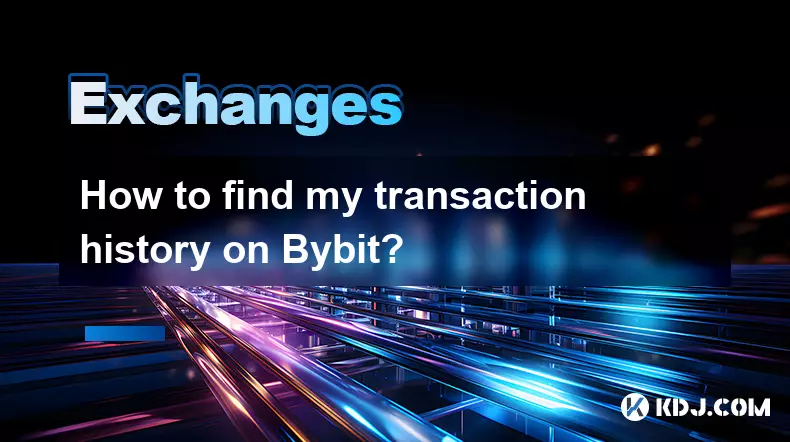
How to find my transaction history on Bybit?
Sep 05,2025 at 03:19pm
Accessing Your Transaction History on Bybit1. Log in to your Bybit account through the official website or mobile application. Ensure you are using a ...

How to check my portfolio balance on KuCoin?
Sep 06,2025 at 10:36am
Accessing Your KuCoin Account Dashboard1. Navigate to the official KuCoin website or open the KuCoin mobile application. Ensure you are using a secure...

How to buy USDT on KuCoin?
Sep 06,2025 at 08:55am
Creating and Verifying Your KuCoin Account1. Navigate to the official KuCoin website and click on the 'Sign Up' button to begin registration. Provide ...

Why is my KuCoin account frozen?
Sep 05,2025 at 06:55pm
Common Reasons for a Frozen KuCoin Account1. Unverified identity information. KuCoin requires users to complete KYC (Know Your Customer) procedures to...

How to set a stop loss on KuCoin?
Sep 06,2025 at 10:01am
Understanding Stop Loss on KuCoin1. A stop loss is a risk management tool used by traders to limit potential losses on a position. On KuCoin, this fea...

What is the difference between spot and futures on KuCoin?
Sep 06,2025 at 04:01am
Understanding Spot Trading on KuCoin1. Spot trading involves the direct purchase or sale of cryptocurrencies at the current market price. When a user ...

How to find my transaction history on Bybit?
Sep 05,2025 at 03:19pm
Accessing Your Transaction History on Bybit1. Log in to your Bybit account through the official website or mobile application. Ensure you are using a ...
See all articles

























































































